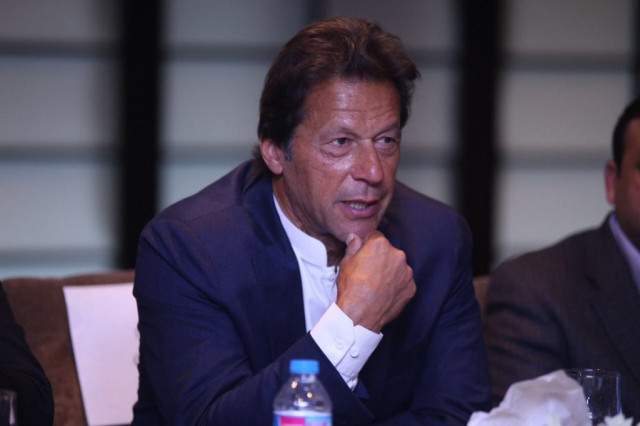The problem with populism
PTI must abandon the populist agenda if it believes that the democratic system is higher than a moral crusade

Imran Khan. PHOTO: PTI
Populism, in political science, is the idea that society is divided into two factions that are in a constant state of war with each other: the ‘corrupt elite’ and the ‘pure people’. The populist leader portrays himself as a saviour, the true friend of the people, who will purge the system of those who have crafted it to benefit themselves. If this sounds familiar, it is because it should. In recent days the PTI has mobilised its populist words into action, taking steps that at their core are akin to populist swamp draining rather than long-term policy making. The PTI’s austerity campaign is populist showmanship because it is not backed by any concrete policy. In the past week, the PTI decided to fire all government employees appointed by Ishaq Dar — ostensibly because those appointments were illegal, although the alleged illegality is easily curable — a decision that makes little sense unless all those appointees were through objective standards found to be incompetent at their jobs. No such evidence is forthcoming, it was populism running rampant, seeing the world in black and white. You are either with us or against us. Democracies never work with such a mentality.
To be fair, many may wonder what the big deal is? What’s wrong with holding the corrupt, or the manipulators of the system to account? Nothing — as long as it is done in a fair, impartial way, by making sure that due process does not suffer, and constitutional guarantees are upheld. This doesn’t suit populist leaders. Democracy is often a slow and frustrating process, but the populist promises quick and easy cleansing. It is easy to talk about sanitising the system while one is on the outside, but when one is part of the machinery of democracy things become far more challenging. This is when the dangers of populism begin to surface. Quick solutions often involve sacrificing fundamental rights, like the right to a fair trial. This is what reportedly happened with the trial of Nawaz Sharif and was also alluded to by the Islamabad High Court while suspending the former PM’s sentence.
Populists can endanger democracy because they have framed their struggle as one of moral superiority. As Cass Mudde, author of Populism: A Very Short Introduction, stated in an interview for The Atlantic: ‘you can’t compromise in a moral struggle…if the pure compromise with the corrupt the pure are corrupted. You aren’t dealing with an opponent since an opponent has legitimacy, but in the populist mind they are the enemy.’ At its core then, the problem with populism is that it requires a leader to divide society, by doing so it delegitimises one of the most important aspects of liberal democracy: pluralism.
Without pluralism, without tolerance for opposing views, democracy is an empty system devoid of substance. It results in those who support the populist agenda transforming into moral crusaders, and if there is one thing that Pakistan doesn’t need more of, it is moral crusaders. But the narrative of ‘us’ versus ‘the corrupt’ has seeped into all our institutions. It has seeped into the judiciary, which now flings the concept of ‘treason’ too loosely for anyone’s liking. It has resulted in the gagging of the media, with journalists who criticise the populists being caricatured into ‘foreign agents’, or, ‘bribed intellectuals.’ As I wrote in a recent piece for this paper, democracy requires norms of mutual tolerance in order to survive. Day by day this norm is losing all value in our system.
The other equally problematic aspect of populism is the way it causes supporters of the ‘saviour leader’ to become blind to facts. Research of the French presidential election showed that voters presented with the actual facts contradicting populist Marine Le Pen’s statements were undeterred in their support for her, despite most of her populist claims being proved false. It is such blind irrational voting patterns that eventually result in democracy toppling like a house of cards. Couple that with one side claiming moral superiority and disaster is just around the corner.
The PTI must abandon the populist agenda if it believes that the democratic system is higher than a moral crusade. In the end it wants to be remembered for concrete policies and legislation that worked towards the betterment of the system. It should be wary of being remembered for nurturing populist rhetoric that eventually eroded our democratic system.
Published in The Express Tribune, October 9th, 2018.
Like Opinion & Editorial on Facebook, follow @ETOpEd on Twitter to receive all updates on all our daily pieces.















COMMENTS
Comments are moderated and generally will be posted if they are on-topic and not abusive.
For more information, please see our Comments FAQ